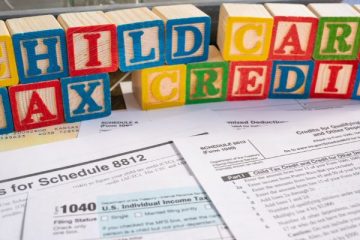Business owners buy, use, and sell properties as per their requirements. The Internal Revenue Service (IRS) observes this action and takes cuts from the gains obtained through such sales. These taxes can highly affect sellers and their financial standings.
If you are one of the business owners preparing to purchase or sell properties, this article is perfect for your understanding of the concept.
You might get confused when IRS suddenly demands taxes over your gains from a sale. The reason could be Section 1245 property! The article here will clarify all information related to this Section and why is it so important.
Table of Content
- 1 What is Section 1245?
- 2 What are the Types of Section 1245 Property?
- 3 Which Properties are Considered Section 1245 Property?
- 4 How is the Section 1245 Property different from the Section 1231 Property and Section 1250 Property?
- 5 How does Section 1245 Property Work?
- 6 How is Section 1245 Taxed?
- 7 What are Short-term Capital Gains and Long-term Capital Gains?
- 8 What is Depreciation Recapture?
- 9 How can Section 1245 Gains and Losses be Reported?
- 10 Frequently Asked Questions
What is Section 1245?
Section 1245 focuses on appropriate tax rates for profits from the transfer or sale of amortizable or depreciable property. It is a method that the IRS complies with to recapture allowable amortization and depreciation taxpayers take on Section 1231 property.
Before purchasing or selling a property, it is important to understand the category of the property. It is very difficult to identify whether a property belongs to the Section 1245 property category. Therefore, it is recommended that you seek help from licensed tax professionals to figure out the conditions of the Section 1245 tax regulations. Now, let’s go towards recognizing the types of Section 1245 properties.
Key Takeaways
A Section 1245 property is a type of depreciable or amortizable business property.
Business personal property and tangible property used in certain industries are included.
Often, capital gains are taxed as ordinary income instead of capital gains on the sale of section 1245 property.
What are the Types of Section 1245 Property?
Section 1245 properties can be largely distributed among two types of properties. These are:
- Business Personal Property: It can also be termed as intangible property, as it includes properties that are movable, not associated with land, and have no physical presence like patents.
- Tangible Business Property: It includes tangible properties that are used in business for its development. All items of furniture and utilities can be added to this category.
Which Properties are Considered Section 1245 Property?
As mentioned earlier, all depreciable or amortized properties belong to the Section 1245 property. However, to be specific while considering their types you can take reference from the list below:
- Patents
- Copyrights
- Trademarks
- Equipment or machinery
- Utilities
- Research facilities
- Automobiles used for business
- Certain storage facilities
Now, you know the properties that are included in Section 1245 but knowing which properties are not a part of this section is also important. These are:
- Buildings
- Structural components such as floors, walls, windows, etc.
- Land
- Any business warehouses held for sale
How is the Section 1245 Property different from the Section 1231 Property and Section 1250 Property?
As noted earlier, Section 1245 is a method to recapture allowed depreciation and amortization deductions of Section 1231 properties. Section 1231 property thus applies to all depreciable businesses and real assets that are owned for more than one year. On the other hand, Section 1250 property holds account for the real property that concerns buildings, structural components, and lands.
Simply defined, Section 1245 and Section 1250 are parts of Section 1231. Whereas the latter only takes care of the real estate property, the former concerns the remaining Section 1231 properties when sold at a profit or loss. However, there are times when a real estate owner also requires dealing with Section 1245 properties while selling business assets.
Now that you are certain about all the types and Sections of the IRS involved with property sales, you are ready to seek how you can save the most from this tax regulation. But before that learn how Section 1245 property works.
How does Section 1245 Property Work?
At times when you plan to sell a depreciated property, you usually receive an ordinary deduction that helps in reducing your taxable income. The tax law allows you benefits when you purchase a property. However, it denies you these benefits the second time when you gain from that property sale. The IRS uses Section 1245 to recover the tax deducted from the property during its initial purchase.
You receive profit or loss while selling a business asset depending on the difference between its adjusted basis and the amount for which you sold it. The adjusted basis cost can be calculated by subtracting the depreciated amount from the initial cost of the asset. Upon selling the property for more than the adjusted basis you have a profit. Similarly, properties sold for less than the adjusted basis result in a loss. The IRS taxes the portion of the profit attributable to the initial deduction benefits, which is synonymous with the total depreciation at your ordinary income rate.
This gain is the Section 1245 property portion that let IRS recapture the previous depreciation. On the other hand, if there are still gains left from the sale, they will be taxed at favorable long-term capital gain rates. In other words, for Section 1245 properties, your gains are taxed twice. Firstly the gain from the adjusted cost to the initial cost is taxed at the ordinary income rate (Section 1245), and secondly, the gain above the actual cost is taxed at capital gain rates (Section 1231).
How is Section 1245 Taxed?
For instance, suppose you bought machinery worth $30,000 two years ago while depreciating $5000 each year, for a total of $10,000. Thus, the adjusted basis of this asset when you will sell it will be $20,000 ($30,000 initial cost minus $10,000 deduction). Assuming you sell the asset for $40,000, you have a gain of $20,000 ($20,000 adjusted basis subtracted from $40,000 sale cost).
Here, $10,000 is the Section 1245 gain because it is the depreciated amount before the sale. This gain is taxed at your ordinary income rate. On the other hand, the additional $10,000 gain above the actual cost of the asset falls under Section 1231 gain, taxed at a long-term capital gains rate. In case, you receive a loss on the sale of a Section 1245 property, it is taxed not as a capital loss but as an ordinary loss.
What are Short-term Capital Gains and Long-term Capital Gains?
When you sell a depreciable business asset, your capital gain determines its tax treatment. More specifically, it depends on the duration of the use of the capital. If you sell a property using it for a year or less than a year, you will experience short-term capital gains. You will be taxed as ordinary income rates for such gains. Reciprocally, if the usage period of the same property is more than a year, you will receive tax treatment for long-term capital gains.
Normally, this tax treatment falls at the 15% rate for all taxpayers (including sole proprietors); whereas the ordinary income tax rate can be from 10% to 35% based on your taxable income. The gains above the original cost are taxed at long-term capital gains of 20%. The Section 1245 properties belong to the long-term capital gains but as observed above, gains between actual costs and adjusted costs can be considered short-term.
An essential fact to note is that no depreciation deductions are allowed if you sell an asset after its purchase within the same tax year.
What is Depreciation Recapture?
Depreciation can be made while having a depreciable property for the first time. However, this tax benefit will not be available if you sell the depreciated asset to receive a gain. The IRS takes this chance to recapture the tax benefits it provided before the sale.
For instance, you purchased a good for $10,000. Generally, you would sell this good at a loss. Now, assume that the good has an increased market value of $12,000 five years later and the depreciation you took for these years is $5000. The adjusted cost for this good is then $5000 (original cost of $10,000 minus depreciation of $5000). It means that depreciated amount of $5000 decreased your ordinary income. Thus, the $5000 will be taxed at your ordinary income rate from your gain.
However, the additional $2000 will be taxed at your long-term capital gains rate.
Is Depreciation Recapture Avoidable?
Depreciation recapture is not directly avoidable. But, it can be balanced with the help of proper tax planning. Capital losses can offset other capital gains enabling taxpayers to eliminate the gains as the losses net against them.
How can Section 1245 Gains and Losses be Reported?
In order to report Section 1245 gains and losses, you must separate them as long-term and short-term. The ordinary income portion of the gain can be calculated via Form 4797 Sales of Business Property. In some cases, you might require filling up Form 8949 Sales and Other Dispositions of Capital Assets for different types of losses and gains along with Section 1245 property gains and losses.
Afterward, Schedule D can be used to estimate the total loss or gain from Form 8949 report. You might need to use Schedule D for reporting additional transactions not present in Form 8949. It is essential to note that all information such as costs, basis, and method of acquisition, depreciation, or amortization of the property till the date of sale should be kept.
The stressful situation that can arise with the complexities of the taxation system can only be reduced through proper information. The article here covers facts that enable you to differentiate between different types of assets and the taxation associated with their sale; the importance of splitting the gains on Section 1245 property between original income rates and long-term capital gains rate, i.e. Section 1231; methods to balance the tax effect when selling a property; and the ways to report your Section 1245 property losses and gains.
Hopefully, the discourse will fulfill all the requirements regarding the information associated with the Section 1245 property. However, if you have any doubts regarding the matter, feel free to contact our experts for in-depth knowledge.
Frequently Asked Questions
Section 1245 property is a kind of Section 1231 property in which an unrecaptured allowable amortization or depreciation deduction is present. Every or some bits of the gains of this property are taxed as ordinary income.
To Which Section does Rental Property falls- Section 1245 Property or Section 1250 Property?
Rental property falls under Section 1250 property because it includes real property like buildings and lands. Low-income rental properties and rented properties meet all depreciation requirements for this Section. On the other hand, Section 1245 does not concern rental properties or buildings.




